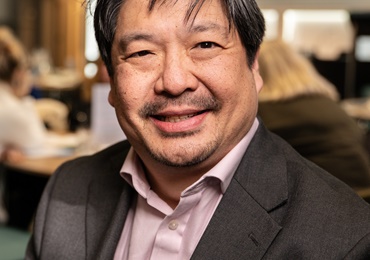Fitness to practise improvements: initial inquiries pilot launched
Our public protection role includes considering complaints and issues raised with us and deciding what needs to be investigated as a fitness to practise concern. Our investigations are fundamental to maintaining public safety and confidence, but they can also have significant impacts on those involved and absorb considerable resources.
We are piloting a fitness to practise process improvement that we hope will start to remedy these issues. We’re calling it our initial inquiries pilot, and it starts today, 4 September.
We effectively need to investigate all clinical matters
We want to make sure that concerns about dental professionals are addressed effectively and proportionately. We will investigate fitness to practise concerns about the health, practice or behaviour of a dental professional, but for too long, too many of the issues raised with us have fallen unnecessarily into this category.
We know our investigations can be complex and take a long time, and that this can have a negative impact on the health and wellbeing of those involved. We also know that lengthy investigations, about what are or perceived to be minor issues, can lead to feelings of mistrust and frustration in the fitness to practise process.
When we receive a concern about a dental professional’s clinical practice, health or conduct, our legislation requires us to consider whether we can make an allegation of impaired fitness to practise. For clinical concerns, we need to gather and review the evidence associated with the treatment to further understand what has happened.
It means we refer nearly all matters relating to the clinical practice of a dental professional for a full fitness to practise investigation. We do that, not due to the seriousness of the issues raised, but because we do not yet have the information needed from the dental professional or practice, to make any other decision. This is what we want to change.
We want to be fully informed as early as possible
We need to make a change if we are to conclude cases more quickly, and we need to do it in the absence of regulatory reform. We think we can do that by being fully informed of all relevant facts, as early as possible in the process.
Our initial inquiries pilot will test a change to the assessment stage of our fitness to practise process. It will run for six months. The change we’re making will initially be applied to all single patient clinical practice complaints where there are no previous fitness to practise concerns. Cases of this type make up almost 40% of all matters referred to the assessment stage, and take more than 30 weeks, on average, to resolve.
We’re focusing on these cases for now because we know from our own analysis and operational experience that these types of cases are much less likely to progress beyond the assessment stage of the process. For that reason, we plan to streamline our processes to ensure these cases reach the assessment stage decision point much quicker.
The change is a simple one. For cases within the current scope, we will be making an early request for specific information to help us make a fully informed decision. Advice on what information is needed will be provided by a clinical dental adviser. In most cases, that will be the patient records. We will not request information about a dental professional’s indemnity or employment in these cases, which we normally do at this stage.
Supplied with the relevant records, the same clinical dental adviser will review all of the information provided and give their opinion. One of our casework managers will then review the case, and if the treatment is of an appropriate standard, close it with no further action.
Learning from any source of feedback is important in the interests of public safety. So any areas for improvement or development we identify, will be fed back to the dental professional involved, to reflect upon and, as appropriate, incorporated into practice.
We need you to help deliver improvements
The aim of our initial inquiries pilot is to improve proportionality and timeliness.
By doing so we hope to make a positive impact on health and wellbeing. Our recent analysis of single patient cases indicates that only one in five are referred to case examiners for a fitness to practise decision. So there is fertile ground for improvements to take root, but our ability to make a fully informed decision earlier in the process will be reliant on early access to clinical records or any other information required.
We will need the cooperation of others if we are to succeed and make a positive change to processes, ahead of legislative reform. We expect to be able to resolve these types of cases more quickly, and lessen the impact of investigations, while continuing to effectively maintain public safety and confidence in the dental profession.
We want to work with the profession to resolve cases that do not pose a serious risk to public safety or confidence as quickly as possible.
Read more about the improvements we’re making in fitness to practise.
 eGDC
eGDC























